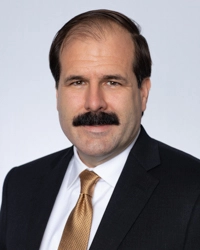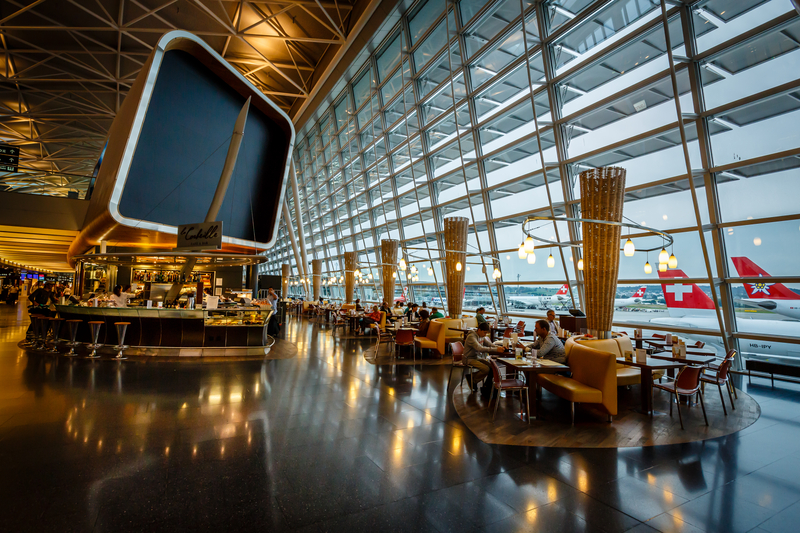A traveling banker was in the course and scope of employment when she died after a night of drinking during a business trip, a California appellate court ruled in an unpublished decision.
In the recent unpublished case of Abraham v. Wells Fargo (2023) 88 Cal. Comp. Cases 1153, the Court of Appeal held that an employee was a commercial traveler, and therefore bound by the exclusive remedy of the workers’ compensation system, when she died while returning from a bar.
The case hinged on one of the lesser-known concepts in California workers’ compensation: an exception to the going and coming rule, known as the commercial traveler rule. The commercial traveler rule provides that an employee who is traveling for business is regarded as acting within the course of his employment during their travel.
In Abraham, applicant worked on a team of traveling bankers that went to Virginia from California to train call center employees. The training sessions lasted from 7 a.m. to 3 p.m., after which time the traveling bankers were to be considered on their own time and free to do whatever they wanted.
Wells Fargo arranged for and paid for the trip, which included air travel, lodging, and rental cars. Each employee had a purchasing card to pay for expenses and meals.
The hotel where the applicant and her co-workers stayed at provided a complimentary alcohol service during its happy hour. One evening, after the training had ended, the applicant and two of her colleagues drank alcohol in the lobby of the hotel and then went to dinner at a karaoke bar. They traveled using one of the rental cars provided by the employer. At the bar, they drank alcohol and when returning to the hotel, the driver of the car crashed into a tree, killing Ms. Abraham. Her parents sued Wells Fargo for wrongful death.
The court dismissed the lawsuit, holding that the applicant was a commercial traveler and therefore subject to the exclusive remedy of the workers’ compensation system. The “commercial traveler rule” provides that a traveling employee is regarded as acting within the course of his employment during their travel upon his employer’s business.
“His acts in traveling, procuring food and shelter are all incidents of the employment, and where injuries are sustained during the course of such activities, the Workmen’s Compensation Act applies.’” (Wiseman v. Industrial Acc. Com. (1956) 46 Cal.2d 570, 572.) The commercial traveler doctrine applies workers’ compensation coverage not only to the travel, “but also to other aspects of the trip reasonably necessary for the sustenance, comfort and safety of the employee.” (LaTourette v. Workers’ Comp. Appeals Bd. (1998)17 Cal.4th 644, 652) (emphasis added.)
Because Abraham was an employee of Wells Fargo traveling for the purpose of the employer’s business, she was a commercial traveler at the time of her death and her conduct of traveling and procuring food, including drinks, fell within the conditions of her employment.
The court also rejected plaintiff’s claim that Abraham was engaged in a purely personal undertaking when she died because she was drinking after-hours at a bar. When an employee engages in purely personal activity that is not contemplated by the employer, the employee may be found to have made a material departure from the course of employment and, therefore, not within the course of employment. (IBM Corp. v. Workers’ Comp. Appeals Bd. (1978) 77 Cal.App.3d 279.) (See Shubin v. WCAB 76 Cal. Comp. Cases 1241 (2011) (Applicant was on a stop-over in Oakland for a rest period; after he was released from duty, Applicant chose to spend his rest period at a friend’s home in Winters, approximately one hour north of the Oakland Airport. He was injured in a motor vehicle accident while driving to Winters. The WCAB held business traveler exception did not apply).
In Abraham, the fact that decedent and her colleagues drank alcohol and stayed out late was of no consequence, according to the court, because one of the purposes of the trip was to network with other bankers. The team was encouraged to dine together and spend time together. While the employer did not pay for the alcohol, it also did not prohibit its consumption.
The Abraham case illustrates the fine—and often befuddling—distinction between compensable injuries sustained during business trips and non-compensable injuries that were caused by the employee’s material deviation. Courts have held that some leisure time activity—such as going to a restaurant or bar—is incidental to an employer’s requirement that an employee be away from his home base for an extended period of time and is within the “course of employment” (IBM Corp. v. Workers’ Comp. Appeals Bd. (Korpela) (1978) 77 Cal. App. 3d 279, 282 (employee was within the course of employment on his way back from a 60-mile weekend trip from Kenosha, Wisconsin to Chicago to visit relatives during a 10-day training program in Chicago); Fleetwood Enterprises, Inc. v. Workers’ Comp. Appeals Bd. (2005) 134 Cal.App.4th 1316 (Applicant was on a business trip and, with the employer’s permission, continued to sight-see; held, business traveler exception did not apply as the injury was not during the business trip.)
The Abraham case also reminds us that the commercial traveler rule is an exception to the going and coming rule, which itself is an exception to Labor Code 3600. LC 3600 requires that injuries must occur arising out of and in the course of employment to be compensable.
In other words, the commercial traveler rule brings employees under the workers’ compensation system when they are injured while on a business trip. Moreover, there is large latitude provided by the courts in assessing whether an employee’s personal conduct while on a business trip is a material departure from their employment. Even the consumption of alcohol is not, by itself, insufficient in most cases to defeat a business traveler claim.
CONCLUSION
When analyzing claims with traveling employees, claims professionals should carefully examine the employer’s personnel handbooks when there is a question of whether an employee’s conduct on a business trip constitutes a material deviation. Did the travel documents or policy prohibit the consumption of alcohol while on business trips? If so, did the employer enforce that prohibition?
The testimony of coworkers and supervisors is similarly important. What was the understanding conveyed to the employees about the business trip? Were they encouraged to dine or socialize with clients or co-workers? Were purely personal activities allowed as long as they were related to the purpose of the business trip? A thorough investigation may uncover evidence finding a material deviation that may preclude a successful claim.
Michael P. Burns is a Partner at Bradford & Barthel’s San Jose location. Before joining B&B, Michael practiced civil litigation and employment law. If you have questions about workers’ compensation defense issues, feel free to contact Michael at mburns@bradfordbarthel.com or (408) 392-8202.
Viewing this website does not form an attorney/client relationship between you and Bradford & Barthel, LLP or any of its attorneys. This website is for informational purposes only and does not contain legal advice. Please do not act or refrain from acting based on anything you read on this site. This document is not a substitute for legal advice and may not address every factual scenario. If you have a legal question, we encourage you to contact your favorite Bradford & Barthel, LLP attorney to discuss the legal issues applicable to your unique case. No website is entirely secure, so please be cautious with information provided through the contact form or email. Do not assume confidentiality exists in anything you send through this website or email, until an attorney/client relationship is formed.



